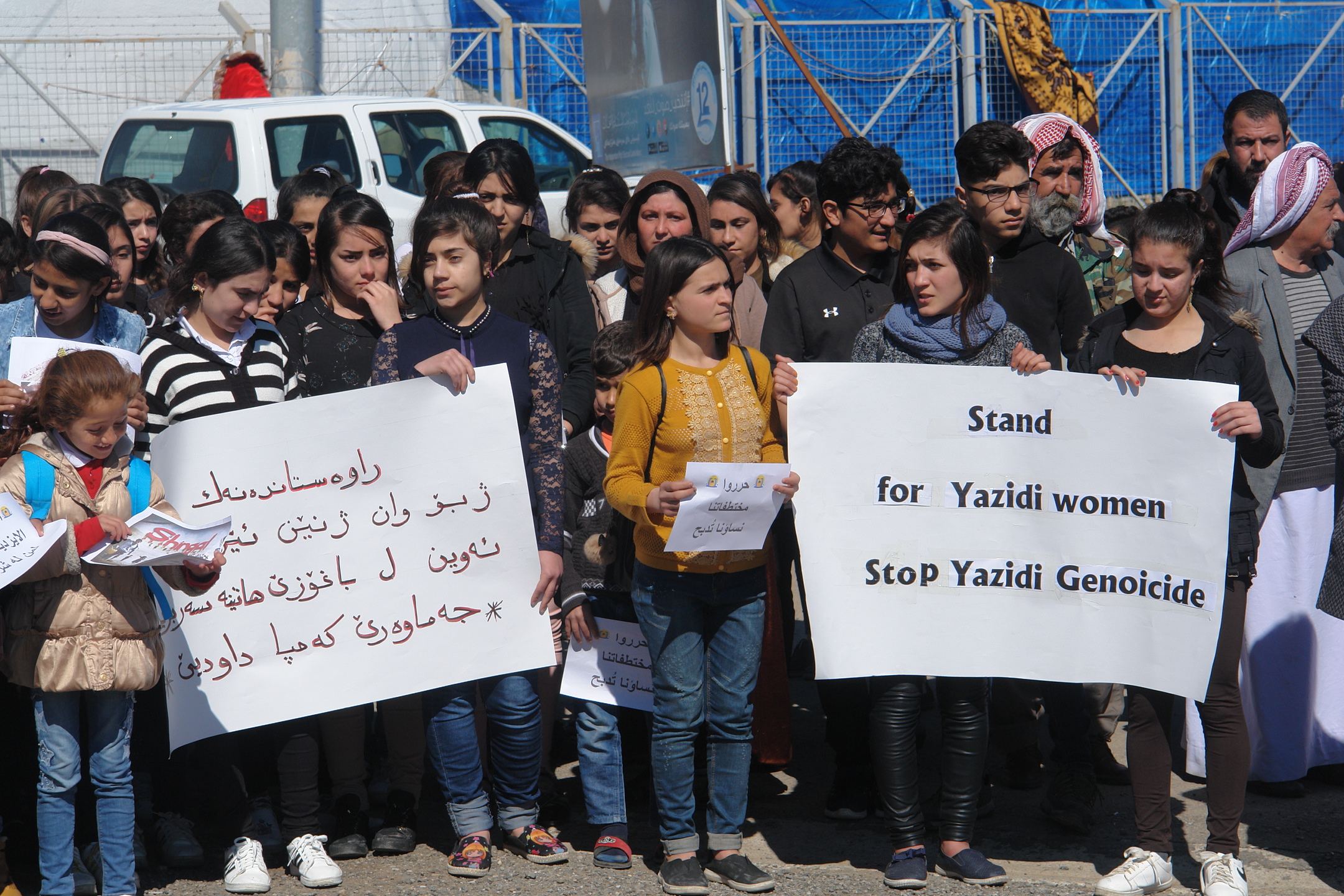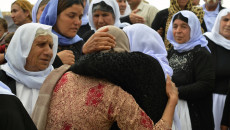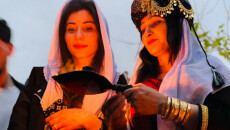Over 400 Ezidi survivors of Islamic State of Iraq and Syria ISIS atrocities are to receive a monthly salary from the Iraqi federal government as part of the first practical step of the Yazidi Survivors Law, which was approved two years ago to compensate the esnlaved women.
The General Directorate of Survivors' Affairs - affiliated to the Iraqi Ministry of Labor and Social Affairs - has begun the process of issuing an electronic card (MasterCard) for survivors who have completed their transactions and have their applications approved for the purpose of receiving salaries.
“The number of people whose transactions have been completed is 420 people, and they will receive several months’ salaries at once, because they were calculated for them since June 2022, and after settling the dues, they will receive their salaries on a monthly basis,” Sarab Elias, the General Director of Survivors’ Affairs, told KirkukNow.
Paying salaries represents the first practical step to implement the Yazidi Survivors Law No. 8 of 2021, as the surviving women and girls will benefit directly from it.
"It is true that the law was issued two years ago, but the financial dues were not allocated. Now they have been allocated and reached the Ministry of Labor since January of this year, so we will start distributing the first salary during the next few days," she added.
According to the Yazidi Survivors Law, a monthly salary of twice the lowest pension for surviving women and girls will be paid - the lowest pension in Iraq is 500,000 Iraqi dinars IQD - meaning that each survivor will receive a monthly salary of one million IQD (USD650).
The law includes not only Yazidis, but all survivors of Yazidis, Turkmen, Christians and Shabak communities, who were enslaved by the extremist militants of the ISIS – Daesh - and liberated from captivity or survived the mass killing campaigns.
It also includes all children under the age of eighteen of both sexes.
420 people will receive several months’ salaries at once
In March 2021, the Iraqi parliament ratified a law for reparation of Ezidi, Tukrmen, Christian and Shabak women survivors of ISIS.
The Ezidi Women Survivors' Law referred to the Iraqi parliament by the Iraqi President Barham Salih in March 2019, provides support and rehabilitation for the community, particularly the female members who escaped Islamic State abduction and slavery.
The law provides financial compensation for female and male survivors while it has not addressed other more sensitive issues, such as dealing with children who were the results of IS sexual abuse.
The law has outlined an office to be managed by an Ezidi to undertake the mission of receiving documents from the victims for the purpose of their compensation and providing a prosperous life.
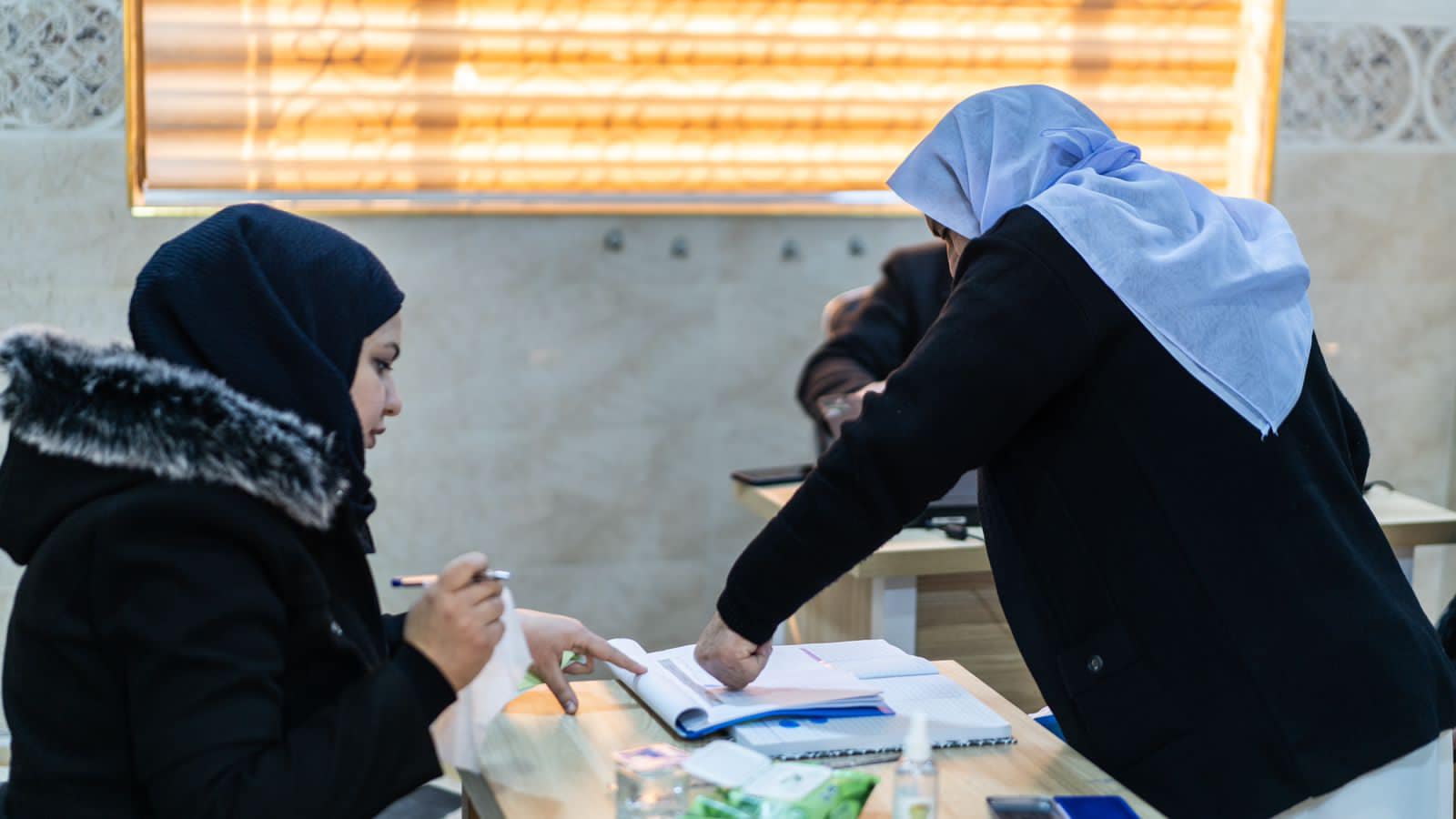
Nineveh, 2023: An Ezidi woman fingerprints to get an electronic card in order and receive her first salary. Directorate of Survivors' Affairs
"We have been waiting for two years without receiving a single dinar. We are about to lose hope. We feel that things are going very slowly," says Laila Shammo, an Ezidi woman who with her two daughters escaped ISIS captivity in 2015.
In order to benefit from the Survivors Law, Layla prepared three official letters issued by the Abductees Rescue Office, the Yazda Organization, and the Mosul Court confirming her kidnapping story and handed them over with a number of official documents.
After two years that she spent hoping to receive the salary, Shammo says, "They told us that our files would go to Baghdad, and if there were no problems, they would contact us, but we did not hear anything from them."
IS militants took control of Shingal (Sinjar) district in August 2014, and kidnapped 6,417 Yazidis, including 3,548 girls and women. 3,562 people were resuced, including 1,207 girls and women, in addition to 2,016 children of both sexes, according to the latest figures by the Kurdistan Regional Government KRG. The fate of 2,693 abductees is still unknown, 1,262 of whom are females.
We feel that things are going very slowly
Ezidis are an ethno-religious minority over half a million people, mostly residing in Shingal, in northern Iraqi province of Nineveh. The militants of Daesh extremist group in 2014 attacked their communities, killing thousands of men and taking thousands of women and children, in an atrocity the U.N. said amounted to genocide.
IS used the women and girls as sex slaves. Tens of thousands of Ezidis are still living in Internally Displaced People IDP camps in Iraqi northern province of Duhok. Over 80 mass graves and tens of individual graves were found up today in Ezidi dominant towns in Nineveh Northern Province.
Khairy Bouzani, the supervisor of the Ezidi abductees’ rescue office of the KRG, told KirkukNow, “We record all information about the abducted persons through a form. The transactions are not delayed in any way. The rest is related to the General Directorate of Survivors’ Affairs, not us.”
In addition to the Ezidi abductees, statistics of local activists and civil society organizations in Tal Afar obtained by KirkukNow earlier indicate that out of a total of 1,300 Turkmen abductees, including hundreds of women and children, only 84 of them were released, 23 of them were female.
According to statistics obtained by KirkukNow from the Directorate of Christian Affairs in the Ministry of Awqaf of the KRG, 62 Christians went missing during the period of ISIS control, 18 of whom are females.
KirkukNow was not able to obtain any statistics regarding the abductees or the survivors of the Shabak community.
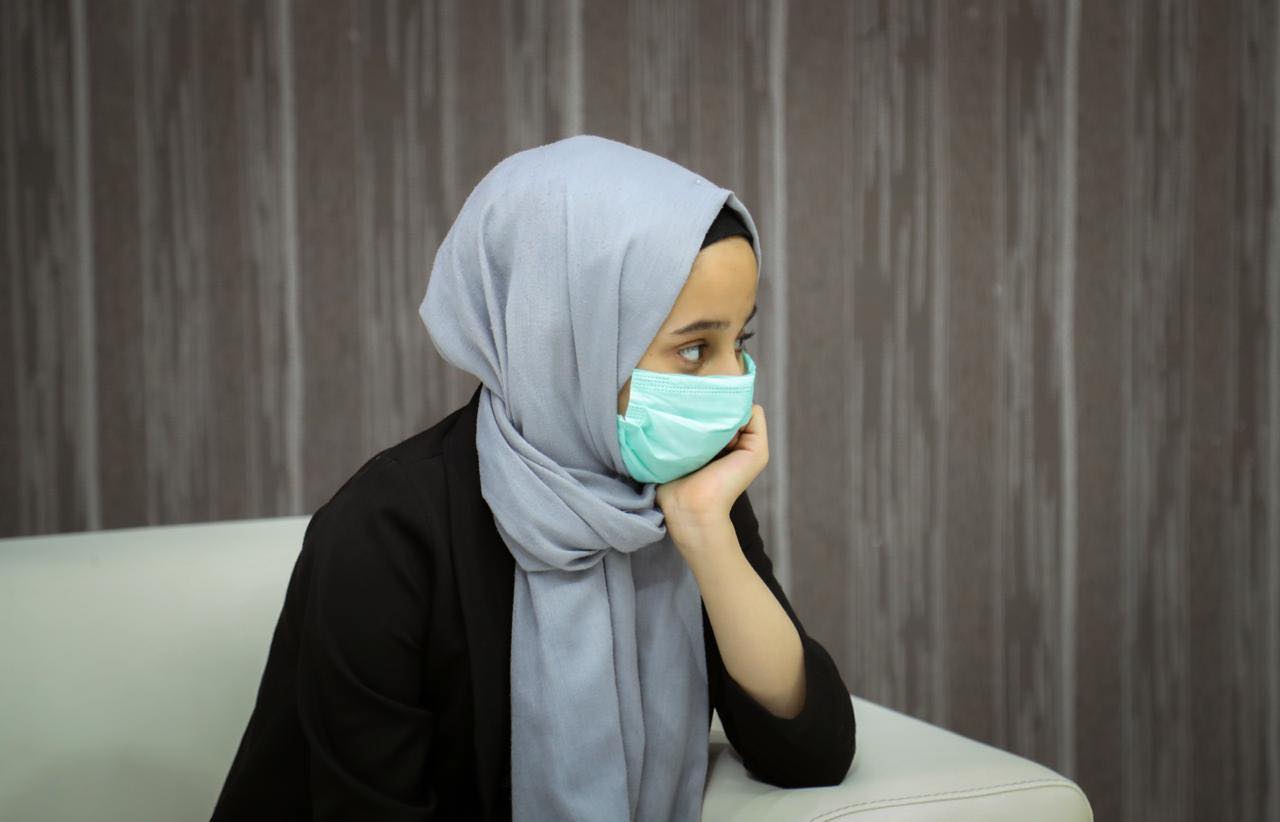
"Christians, Turkmens and Sabks, like the Yazidis, will benefit from this law, but the number of abductees and survivors is not documented. Some of them do not disclose their identities because of fear or security reasons, but in general we expect that between four and five thousand people will benefit from the Survivors Law," according to the General Director of Survivors Affairs.
Sarab Elias says that the papers of each survivor are received after filling out the form and submitting the documents to a committee headed by a judge, which decides on them, and this is one of the reasons for the delay in compensation. "In the beginning, we focus on the salary, and then we implement the other steps of the law."
The Survivors Law includes granting the groups covered by the provisions of this law a plot of residential land or a housing unit for free, in addition to opening a number of centers for providing psychological support to survivors and providing educational opportunities for survivors who quit school.
According to the law, priority is given to survivors in terms of state appointments, and they have the right to return to school regardless of age or grade.
In general, we expect that between four and five thousand people will benefit from the Survivors Law
“The women and girls were supposed to compensate the women and girls for the injustice they were subjected to several years ago,” Herman Mirza, deputy emir of the Yazidis, told KirkukNow. survivors for compensation.
The Ezidi Survivors Law did not include any solution for Ezidi women who had given birth to children as a result of rape at the hands of ISIS militants, which exposed them to ostracism by the Ezidi community, which refuses to embrace their children, and their return has become dependent on abandoning their children, so many survivors are still living in shelters designated by some organizations until they find a solution to their dilemma.
The events that befell the Yazidis were recognized in the law as crimes of genocide, and the law stressed the registration of cases against the perpetrators of these crimes, and designated August 3 of each year as a national day to remember the tragedy, and recommended the Ministry of Foreign Affairs to work to mobilize international recognition of these crimes.

